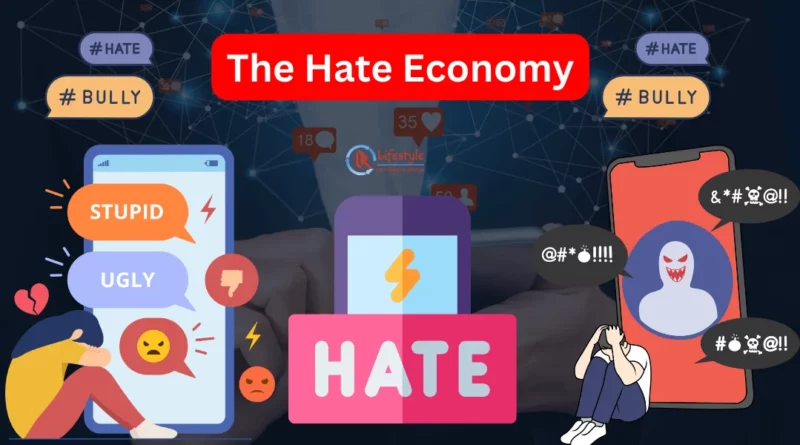The Hate Economy: How Online Negativity Drives Profits
Introduction
In today’s interconnected world, where social media platforms serve as the digital town squares of our time, a disheartening reality has emerged. People are increasingly being judged not by the content of their character, but by the image they project online. This pervasive issue has given rise to what can be described as a “Hate Ecosystem” where views, engagements, and profits are intertwined with the spread of negativity and division.
The emergence of social media platforms has ushered in an era where attention and interaction reign supreme in the digital landscape. In this new digital realm, social media companies offer content creators various monetization avenues, making the chase for views and engagements a top priority.
However, regrettably, this relentless pursuit sometimes leads to the compromise of ethical values and basic human decency. While aiming for online virality and financial gains, certain individuals choose the path of disseminating hate, false information, and venomous content.
The Illusion of Social Media
Social media, with its glossy filters and carefully curated profiles, has created a deceptive illusion of perfection. Users are often enticed to showcase only the highlights of their lives, painting a picture of an idealized existence. This desire for validation in the form of likes, shares, and comments can lead to an unhealthy obsession with one’s online persona.
The Mask of Anonymity
Behind the safety of screens, the anonymity provided by the digital realm emboldens individuals to express their darkest thoughts without accountability. Trolls, fueled by a sense of power in their invisibility, unleash hate and vitriol upon those they disagree with or perceive as different. This behavior is not limited to anonymous accounts; even those who use their real identities can fall into the trap of online hatred.
The Profit Motive Behind the Hate Ecosystem
While the Hate Ecosystem thrives on negativity, it is essential to understand the economic incentives that perpetuate it. Social media platforms, fueled by algorithms that prioritize engagement, often amplify controversial and divisive content. This, in turn, leads to more clicks, longer screen time, and higher ad revenue for these platforms. In essence, hate and conflict have become commodities in the digital marketplace.
Examples from the Frontlines
To truly grasp the gravity of this issue, let’s consider some real-world examples:
Cyberbullying:
Tragically, the consequences of online hate can be dire. Cyberbullying has driven many young individuals to depression and even suicide. The allure of anonymity allows tormentors to evade accountability for their actions.
Political Polarization:
Social media has become a breeding ground for political polarization. Extreme views and conspiracy theories gain traction, fostering an “us vs. them” mentality. Civil discourse is often replaced by hostility and disdain.
Fake News:
In the race for attention, fake news and misinformation flourish. Falsehoods spread like wildfire, sowing confusion and eroding trust in credible sources.
Breaking the Cycle of Hate Ecosystem
The Hate Ecosystem may seem overwhelming, but change is possible. As individuals, we can take steps to counteract the toxicity:
Practice Empathy:
Before passing judgment online, consider the human behind the screen. Empathy and understanding can go a long way in diffusing hate.
Mind Your Engagement:
Be mindful of what you engage with online. Avoid feeding the hate machine by refusing to participate in toxic discussions.
Support Positive Content:
Seek out and support content that promotes positivity, education, and unity. Encourage those who use their platforms for good.
Hold Platforms Accountable:
Pressure social media platforms to prioritize responsible content moderation and curb the spread of hate.
Digital Detox:
A digital detox refers to a deliberate and short-term hiatus from the utilization of digital devices and technology. It signifies a duration in which you consciously disconnect to recharge, regain focus, and reforge a balanced and healthy rapport with technology.
Conclusion
In conclusion, the Hate Ecosystem is a complex web where negativity, engagement, and profit intersect. However, as users of these platforms, we have the power to reshape the digital landscape. By promoting empathy, responsible engagement, and positive content, we can begin to dismantle the toxic cycle and work toward a more inclusive and compassionate online world. After all, the choice is ours: in the business of hate, are you the customer?
Also Read:
For News related to entertainment visit our entertainment website:
https://www.glamworldtalks.com/



